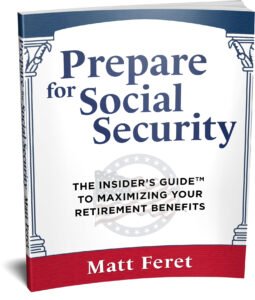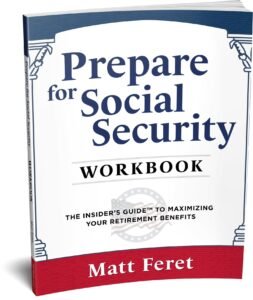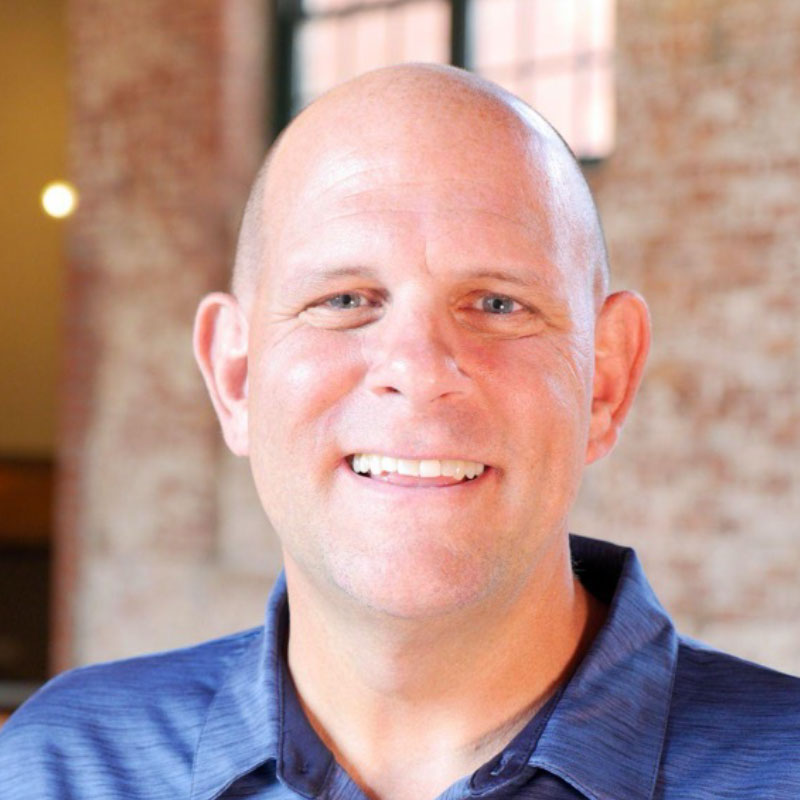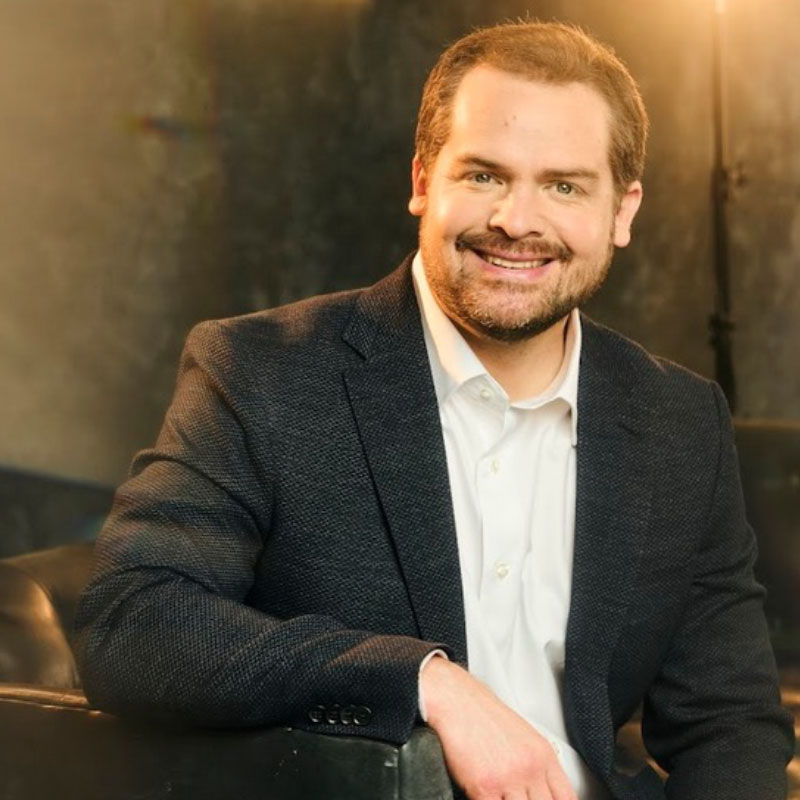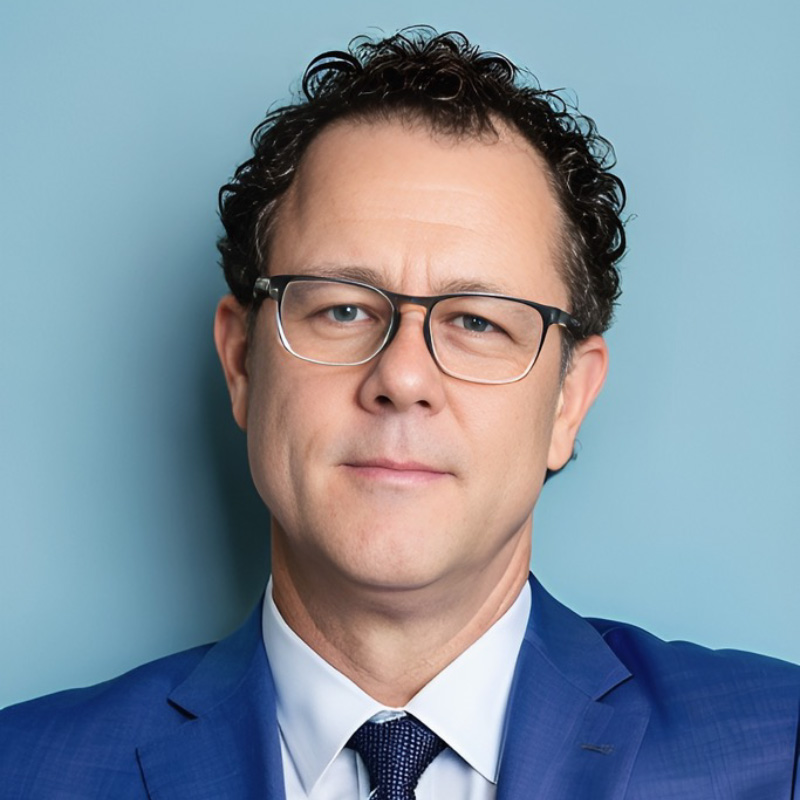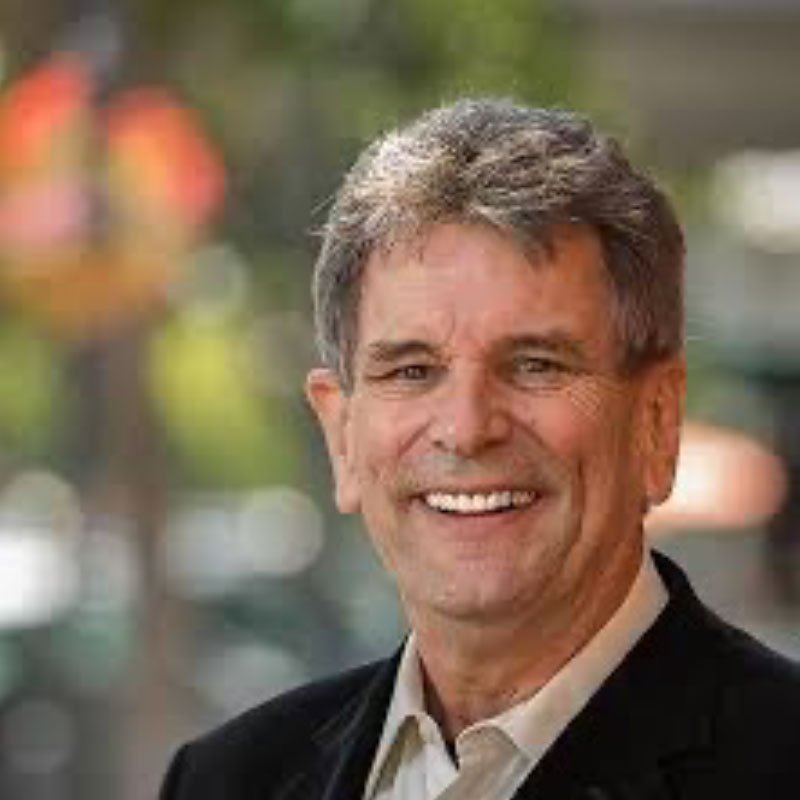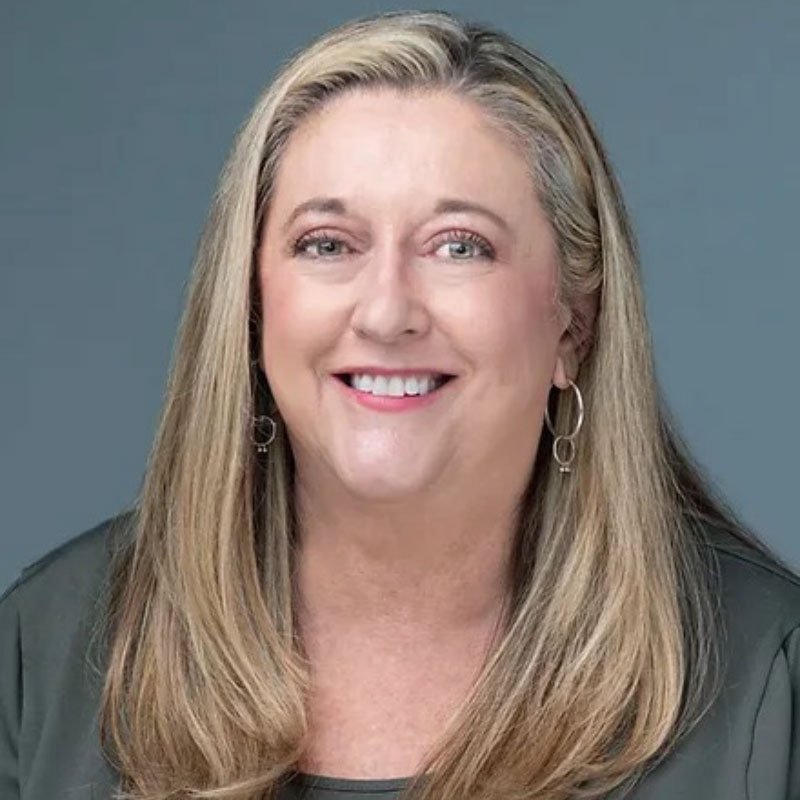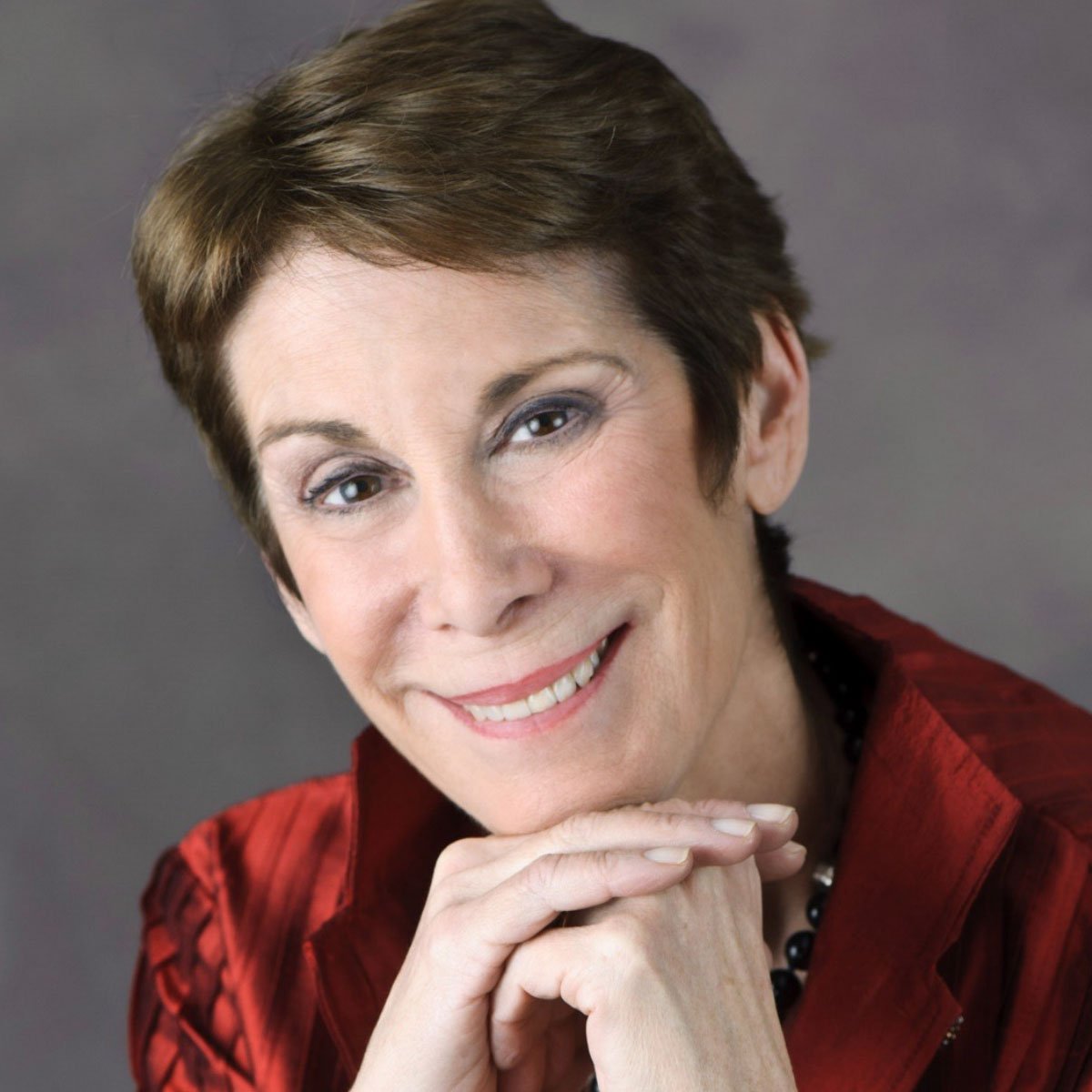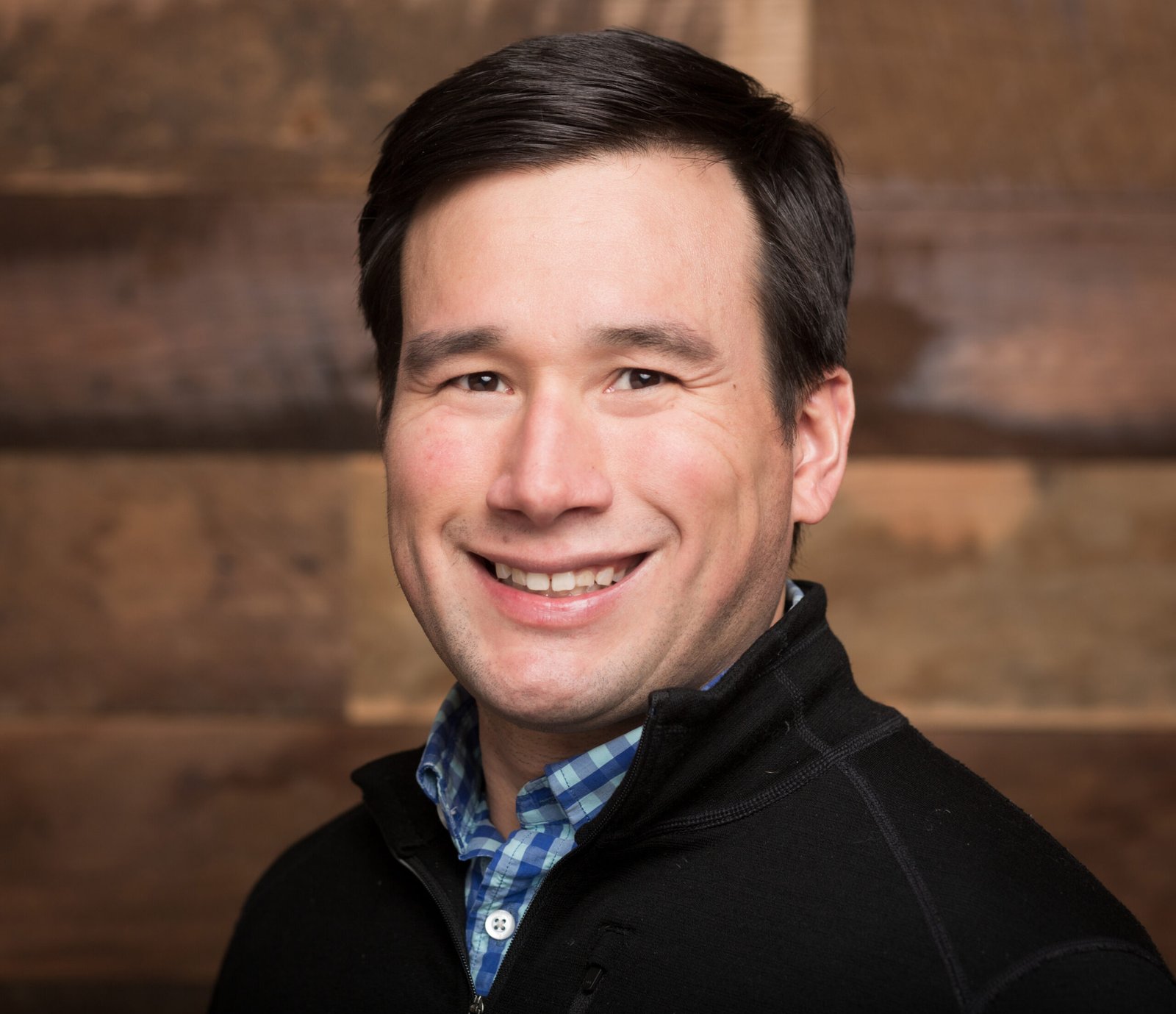#021
Share This:
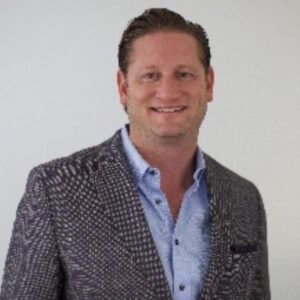
“Our country hasn't planned for it. Our country doesn't understand it. We have this massive aging population coming. I'm sure you talk about it, but the reality is, 10 years from now, over 20% of our population is going to be over the age of 65. Another 20% of our population is going to be under the age of 18. So when we look at who's in the middle and respectively both of those groups of individuals need almost one on one care and maintenance and oversight and expense. And so it's going to put a big squeeze on our population, a mass attack on our health system. And so looking at that and looking at all of the things that are coming into play there, it's going to become increasingly more expensive to care for your loved one, to care for your parents as they age.”
- David Laiderman, CEO of Veterans Home Care
David Laiderman is CEO of Veterans Home Care, a private, family-owned and operated company that helps veterans, their survivors and caregivers support in-home care. He also created Smart Companion – an Amazon Alexa and Amazon Show - connected device that connects older adults with caregivers and a support structure to help keep loved ones in their homes safely.
Veteran’s Home Care VetAssist Program Aid and Attendance is a little-known VA benefit for veterans or their survivors who need the help of another to live safely at home. It pays for assistance with activities of daily living, such as help with personal care, medication reminders, transportation benefits, light housekeeping, laundry and more. Aid and Attendance can also pay for in-home care, adult daycare, assisted living expenses, medical alert devices and more.
This episode will give you an insider’s guide to in-home care for older adults, veterans, their surviving spouses and caregivers.
Enjoy!
Listen to the episode on Apple Podcasts, Spotify, Deezer, Podcast Addict, Stitcher, Google Podcasts, Amazon Music, Alexa Flash Briefing, iHeart, Acast or on your favorite podcast platform. You can watch the interview on YouTube here.
Brought to you by Prepare for Medicare – The Insider’s Guide book series. Sign up for the Prepare for Medicare Newsletter, an exclusive subscription-only newsletter that delivers the inside scoop to help you stay up-to-date with your Medicare insurance coverage, highlight Medicare news you can use, and reminders for important dates throughout the year. When you sign up, you’ll immediately gain access to seven FREE Medicare checklists.
Quotes:
“Being a caregiver has to be the hardest job on our planet right now. Literally. First responder, caregiver. I mean, it is a lot of energy. It's physical, it's emotional. It's so challenging. And so we see it every day, unfortunately. It really falls on the caregiver. But don't underestimate what a two-hour break can give you or a four hour break. If I have to go to work and I'm stressed out all day because I don't know what's going on with my mom at home, I leave her in the morning and I come home at night and I can't afford private care for her and she doesn't qualify for any additional programs. Fortunately for a lot of our clients, they fall right above the Medicaid line, which is the worst place to be in our healthcare system.
“And so I'm stressed all day, well what does that do to my work? I can't stay focused in my meetings. I can't really contribute the way that my employer expects me to. I'm stressed out about my mom all day. And so having a solution like this in those moments can give you that peace of mind to know that it's there. There's something there to keep her safe. There's an option there in the event that ... I'm concerned she's going to fall. There's something there to protect her that she's willing to participate in.”
- David Laiderman, CEO of Veterans Home Care
“The gap or the problem and why our company exists in the first place is that, unfortunately, the same veteran family that typically would qualify … generally doesn't have a savings or enough savings to be coming out-of-pocket to spend the money on the qualifying medical expenses that otherwise qualify you for this program to show proof of spend. And why is that important? Because this particular pension benefit is a reimbursed pension benefit. You'd have to be spending the money to get the money. But if you can't afford to spend money, then you can't show that you qualify.”
“It's a great benefit. It's a great program. The VA's awesome. What they provide is unbelievable but there are some of these interesting gaps. And I think in the time that the program and this benefit and fiduciary was created, it was created to say, "Okay, we have veterans who are coming out-of-pocket and spending money on these expenses and we need to reimburse them." That was the lane that created it years ago. Our company gets a lead, we take a veteran or a survivor and we work them through. We have our own application. We help them gather all the particular documentation they would need to support the VA application. They fill out the VA application and send it in and then we help them gather all the supporting documentation in the event, which is frequent, that the VA would come back and say, "Okay, we need this, this and this to prove these numbers." We get them fully prepared for that.”
- David Laiderman, CEO of Veterans Home Care
#021
Selected Link from the Episode:
Veterans Home Care Contact Info:
info@veteranshomecare.com or national hotline: 888-314-6075
Twitter: https://twitter.com/VHCVetAssist
YouTube: https://www.youtube.com/channel/UCp2P4woWchyK6BbMAv3Tg4g
LinkedIn: https://www.linkedin.com/company/1089928
Full Show Transcript:
00:00:00 / 00:48:46
LEGAL CONDITIONS:
Matt Feret/MF Media, LLC owns the copyright all content and transcripts of The Matt Feret Show, and themattferetshow.com with all rights reserved, as well as right of publicity. All rights reserved.
No part of this publication may be reproduced or transmitted in any form or by any means, electronic or mechanical, including photocopying, recording, or by any information storage and retrieval system without written permission of the publisher, except for the inclusion of brief quotations in a review. You are welcome to share the below transcript (up to 500 words) in media articles, on your personal website, in a non-commercial article or blog post, and/or on a personal social media account for non-commercial purposes, if you include attribution to “The Matt Feret Show” and link back to the themattferetshow.com website.
WHAT IS NOT ALLOWED: No one may copy any portion of the content or use Matt Feret’s name, image or likeness for any commercial purpose or use, including without limitation inclusion in any books, e-books, book summaries or synopses, or on a commercial website or social media site (e.g., Facebook, Twitter, Instagram, etc.) that offers or promotes your or another’s products or services.
DISCLAIMER: This publication is in no way sponsored, associated, authorized, approved, endorsed nor, in any way affiliated with any government agency, company, trademarked names, or other marks. Any such mention is for purpose of reference only. Any advice, generalized statistics, or opinions expressed are strictly those of the host and the guest. This publication, The Matt Feret Show nor themattferetshow.com website is meant to replace the sage advice of healthcare, insurance, financial planning, accounting, or legal professionals. You are responsible for your financial decisions. It is your sole responsibility to independently evaluate the accuracy, correctness or completeness of the content, services, and products of, and associated with this publication. The thoughts and opinions expressed in this publication are those of the host and guest(s) only and are not the thoughts and opinions of any current or former employer of the host and guest(s) nor is this publication made by, on behalf of, or endorsed or approved by any current or former employer of the host and guest(s).
Matt Feret (00:02):
Hello everyone. This is Matt Feret, author of the Prepare for Medicare book series and welcome to another episode of The Matt Feret Show, where I interview insiders and experts to help light a path to a successful retirement. Come say hello at www.themattferetshow.com for YouTube videos, show links, notes, websites referenced, quotable quotes and the complete show transcript. You can also check out http://prepareformedicare.comand my new https://prepareforsocialsecurity.com. Both websites support the books, Prepare for Medicare: The Insider's Guide and Prepare for Social Security: The Insider's guide.
(00:47):
Make sure to sign up for my newsletter, I only send about one a month. David Laiderman is CEO of Veterans Home Care, a private family owned and operated company that helps veterans, their survivors and caregivers support in-home care. He also created Smart Companion and Amazon Alexa and Amazon Show connected device that connects older adults with caregivers and a support structure to help keep loved ones in their homes safely. Veterans Home Care VetAssist program Aid and Attendance is a little known VA benefit for veterans or their survivors who need the help of another to live safely at home. It pays for assistance with activities of daily living, such as help with personal care and even help with medication reminders, transportation, light housekeeping, laundry and more. Aid and Attendance can also pay for in-home care, adult daycare, assisted living expenses, medical alert devices and more. This episode will give you an insider's guide to in-home care for older adults, veterans, their surviving spouses and caregivers. Enjoy. David, welcome to the show.
David Laiderman (02:02):
Hey, thanks for having me, Matt. I appreciate it.
Matt Feret (02:05):
So tell everybody what you do, how long you've been doing it, and how you help people.
David Laiderman (02:10):
So I am the CEO of a company called Veterans Home Care with a big focus on one of our subsidiaries called Smart Companion. You can learn more about it at http://www.smartcompanion.care And what we do at the company is really focus on the senior care market. So we talk and educate individuals and adults kind of in the age of 50 to 80 that are taking care of older parents and need more information, need ways to help pay for some of the costs, the expenses of caring for a loved one. And so we have some very concentrated programs around those particular avenues.
Matt Feret (02:55):
What kind of services do you find is in most need out there for caregivers in that age group? If you're talking 50 to 80, well I guess 50 wouldn't be, but that's not necessarily the person just turning 60 or 65 or 70. We're really talking older adults here and then they're middle aged to almost retirement aged caregivers. In that niche, what are some of the most important things that maybe nobody's thinking about or considering or that you can help with?
David Laiderman (03:29):
So, kind of funny and I spent a couple years doing life insurance and health insurance really young, it was one of my first internships. So I sort of learned this perspective really young. And then as I got more into the senior care market, it was kind of an evolution of my own career. It became a huge light bulb and that is when you're wealth planning with your financial advisor and you're younger and you're in your career and you get your first introduction to a wealth manager or whatever. They talk to you about your family and your kids going to college and maybe you need life insurance in case you die and for your loved ones to cover the house, college, et cetera. The one thing that none of them ever talk about is how are we going to pay for your parents?
(04:19):
How are we going to keep them in their home? Can they afford to keep themselves in their home? The average life expectancy in the last 20 years has grown, I think it's eight to 10 years. So we're in the mid-eighties now, 20 years ago it was 74 or 75. And so when we look at that and you look at that burden, it's one thing to have to put a child through college at the rates that college is charged now, to put your kids through college, add at the same time for most families, a three to $9,000 a month expense care for your parents. To keep them in their home or move them into a nursing home because they got Alzheimer's or they have dementia and they can't be by themselves anymore safely. That's a real expense and unfortunately a huge piece of our population can't afford that.
(05:12):
And so when you look at that, that burden falls on the family to care for them and we're just not playing for it. Our country hasn't planned for it. Our country doesn't understand it. We have this massive aging population coming. I'm sure you talk about it, but the reality is, 10 years from now, over 20% of our population is going to be over the age of 65. Another 20% of our population is going to be under the age of 18. So when we look at who's in the middle and respectively both of those groups of individuals need almost one on one care and maintenance and oversight and expense. And so it's going to put a big squeeze on our population, a mass attack on our health system. And so looking at that and looking at all of the things that are coming into play there, it's going to become increasingly more expensive to care for your loved one, to care for your parents as they age.
(06:14):
And so people that are going into retirement and they've saved all this money for their retirement so they can enjoy retirement, all of a sudden are being squeezed and having to stay into work longer because now they have this new $7, 000 a month expense that they have to incur to care for mom, to keep her in her home because she refuses to leave her home. She raised you, she kept you in her home and so how could you let her leave the home? And the pandemic has put additional pressures on that system. A lot of families are even nervous to move their parents out of a home and put them into a senior living facility based on what's occurred through the pandemic. So there's a real safety and security concern there too. So our organization really understands that and works with families through a multitude of different programs to introduce options to them for respite care, which is kind of like a two hour break. I'm around my mom constantly.
(07:18):
She can't be left alone, my siblings and I are trading off. Our kids are even contributing. And so it's a break where I can remove myself from the environment, get what I need done and have peace of mind to know that my mom or my dad are not going to be in a position where their safety is going to be a concern.
Matt Feret (07:44):
You've hit so many things in what you just talked about and it goes through so many cycles of families and extended family. And you're right, fifties, sixties, seventies is when everybody's, they say put X amount away as much in your 401K as early as you can. And then Mr. Market or Mrs. Market does what it does and then all of a sudden you're looking at, "Well, I'm not a hundred percent in stocks and now I'm listening the financial advice of going more into [inaudible 00:08:17]. You're doing the right thing and then all of a sudden you've got this burden you didn't anticipate or no one talked to you about. Whether or not you have a financial planner or not. It's all of a sudden, you planned your life necessarily, here's what I'll spend in retirement and then you get hit with paying for someone else.
(08:35):
That's got to be a mental challenge and a very real impact on families. How have you and how has your organization approached the multitude of ways that you could handle that, either from an insurance standpoint, you mentioned home standpoint. Are people moving into their homes? Are they moving into their parents' homes? How is this being done real time right now?
David Laiderman (09:02):
Well the pandemic changed that in a big way. We're starting to see some of it come back. When the pandemic happened and everyone kind of closed in, we saw a lot of families... Most of our programs target lower income and kind of middle class. So we saw a lot of families kind of consolidate. They moved mom in with them. They couldn't afford to have her exposed to anyone outside of the home anyway. So it took some of that burden off, although it does introduce a new burden when you have someone like that in your home that needs that additional care. We're starting to see it go back to normal to some extent in terms of how families are living in those capacities. So what we focus on and what we've looked at... So our core business, our veterans home care business, we have a large, pretty broad access to the veteran market and what they call the surviving spouse market.
(10:15):
And so our core program that we've worked on for 20 plus years now, company founded by my aunt, focuses on helping veterans of war time and surviving spouses get access to a specific VA benefit called Aid and Attendance. And I'll explain more about that and how that works. But in our journey to enhance that experience, to enhance that care plan, we developed a technology. Because we looked at the market and we said, "Okay, the reality is the government, the markets, private companies, the infrastructure is not there to care for the amount of seniors that are becoming seniors, basically." If you think about it, people listening in, when you drive around any major metropolitan city in most areas, you see a lot of construction occurring. And typically a healthy percentage of that construction is going to be senior living facilities, assisted living facilities. Because obviously there're groups of people that understand this and they're planning for it. So they're building that infrastructure.
(11:21):
But the reality is when you're talking about 70, 80 million people, that's a whole lot of senior living facilities. So it's not... And they're expensive. So the reality is most seniors are not going to be able to afford that as an option. And god forbid it, the real trajectory takes us to a point where you're going to see senior orphanages because that's really where it's going to go. If our healthcare system can't figure out how to reduce dementia, slow down Alzheimer's, potentially cure it. And there are a lot of really sophisticated groups and really smart people working on those specific initiatives, I'm very confident that they are going to figure that out. Obviously with the FDA being able to propel acceptance of the vaccine drugs and everything. We're seeing that our country and our world are capable of doing something like that. They're capable of moving it through the political environment fast when needed. That's really encouraging. But in the grand scheme of things, where we focus or where we said as a company, how do we leverage technology? How do we take technology to this market? A market that didn't grow up with it... That doesn't... A lot of them, I shouldn't say they don't know how to use a smartphone because my grandmother comments on every Facebook post dating back to 2002.
Matt Feret (12:55):
Exactly. One of the things the pandemic says too is if you ask anybody over the age of 55 what Zoom is, it's almost...
Matt Feret (13:03):
... Over the age of 55 what Zoom is. It's almost the same as Xerox back in the 80s. They know what it is. It's Zoom.
David Laiderman (13:07):
They know what it is, yeah.
Matt Feret (13:08):
Yeah, yeah. It's great.
David Laiderman (13:09):
So I can't say that they ...
Matt Feret (13:10):
Silver linings.
David Laiderman (13:10):
Yeah. I can't say that they don't know technology but they ... It is still ... They're still in discovery mode. And when you're in discovery mode there's a reduced confidence in how to use it, how to leverage it. Is it listening to me? This group of our population, they grew up and they were raised and they were exposed to a different component. George Orwell's 1984 was very real for them, right?
Matt Feret (13:38):
Yeah.
David Laiderman (13:38):
And here we are. We're basically there.
Matt Feret (13:39):
Right. They're not used to having a listening ... A potential ... A microphone on them all the time or a camera on them all the time.
David Laiderman (13:48):
Yeah, totally get it.
Matt Feret (13:49):
Yeah. So you have this core veterans and I definitely want to get into the veterans piece. You've had this core veterans experience that you and your team and your company were running into for 20-ish years and identifying a need and it sounds like you went, "Oh my gosh. Not only is this a need for the veterans communities and their families, it's so much broader than that."
David Laiderman (14:12):
Yeah. I'll walk you through the evolution on how we created this technology and then how it can apply ... I think some of the users might find it really valuable. Our core program involves around a program at the VA called Aid and Attendance. The VA, for those that don't know, is divided into two main divisions. Veteran's Healthcare, which is a VHA, which is how most people know the VA. The healthcare system, VA hospitals, VA nursing homes, et cetera. And a great program. I think it's the top health system in the country.
(14:50):
And then you got VBA, which is Veteran Benefits. This particular program is a benefit to veterans and it's one of the few ... only benefit on the senior side for what the VA calls a survivor. This is a surviving spouse who is married to the veteran at the time of death. He or she has access to this benefit, as well. If your mom or dad were a veteran or they just said passing over the years that during war or whatever, you could ... They could potentially qualify for this program.
(15:29):
There's three main components to this particular program. You have to have served during an active wartime. That's the main veteran element. Or, the spouse's spouse was active during ... You don't have to have served in country but you had to be active in the military, registered during an active wartime period. And then there's some days within a certain range. And our team will help you figure that out.
(15:56):
The other two requirements is ... One is medical, so your doctor has to sign off on a script that's provided by the VA that says that you need assistance with daily living. That can be a number of things. Again, our team can help with that. But the third requirement is income. There's an asset limit. It's like $139,000 and change. It does not include your primary home or your primary car, so those are not included. But your annual income is included, so is your social security, any additional pension, et cetera is included in that asset calculation; the annualized income.
(16:41):
A combination of those things would otherwise qualify you for this Aid and Attendance program. The gap or the problem and why our company exists in the first place is that, unfortunately, the same veteran family that typically would qualify on the low-income component generally doesn't have a savings or enough savings to be coming out-of-pocket to spend the money on the qualifying medical expenses that otherwise qualify you for this program to show proof of spend. And why is that important? Because this particular pension benefit is a reimbursed pension benefit. You'd have to be spending the money to get the money. But if you can't afford to spend money, then you can't show that you qualify.
Matt Feret (17:29):
The old catch-22 in the government benefits, right?
David Laiderman (17:31):
It's a great benefit. It's a great program. The VA's awesome. What they provide is unbelievable but there are some of these interesting gaps. And I think in the time that the program and this benefit and fiduciary was created, it was created to say, "Okay, we have veterans who are coming out-of-pocket and spending money on these expenses and we need to reimburse them." That was the lane that created it years ago. Our company gets a lead, we take a veteran or a survivor and we work them through. We have our own application. We help them gather all the particular documentation they would need to support the VA application. They fill out the VA application and send it in and then we help them gather all the supporting documentation in the event, which is frequent, that the VA would come back and say, "Okay, we need this, this and this to prove these numbers." We get them fully prepared for that.
(18:29):
And then, we also loan them the money to show the expense. Our loan is really creative and it's very unique to this particular program. There's no credit checks, we don't collect collateral, there's zero percent interest. It's a program that we developed that allows us to give them the care right away so they don't have to wait. We start funding their care, their in-home home care, essentially, right away. And then, that becomes the qualifying deduction, essentially, the repayment on our loan. Once the VA pays them, our loan is paid off so we wait until the VA actually entitles the client and that's our guarantee with our program.
(19:10):
It's a way for us to really help the veteran family establish that qualifying expense in order to qualify, which, unfortunately, without our program ... There's about 21,000 veteran families that we've helped to date that wouldn't get the program if they didn't have our loan as part of that process, so ...
Matt Feret (19:30):
Wow, so you loan the money upfront, zero percent interest, no credit check and then you're basically reimbursed later on, right?
David Laiderman (19:39):
Exactly right. Our collateral is the quality of the file to the VA, which again, we collect all the supporting documentation, help them collect that so they're prepared to handle that correspondence with the VA.
(19:53):
The challenge that our organization saw on the veteran side that led us down this path was that the VA caps how much money is given to these individuals for the in-come care. A survivor, she gets a certain amount of money. It doesn't matter where you live in the country, the VA caps how much that is per month. The veteran gets a certain amount of money, a little bit more, also capped. The VA does not discriminate for geography. And so, when we looked at that as an organization the challenge we've seen ... Similar challenge to just, in general, if you're a caregiver for a loved one is that the rates for care have gone up dramatically. Exponentially. And it's getting worse because it's a simple supply and demand against this aging population. We anticipate it getting much, much worse unfortunately.
(20:51):
For us as an organization it was all about keeping our clients in their homes aging safely. Aging in their home. That's where their memories are, that's where they raised their family. They don't want to be removed from that environment. That's where all of the positive components of their life occurred in that home. No one wants to be taken away from that.
Matt Feret (21:13):
No.
David Laiderman (21:14):
For us, it's important to make sure that they stay there and that's our core mission is to keep them safe in their home. We saw that being compromised with the increase in rates in the market and the VA not increasing its benefit amount enough to offset those rates. And a lot of health systems are dealing with that, not just the VA. But for us, we wanted to respond and so we looked at technology and said, "What technology can we develop that can give our clients a more well-rounded care plan? Something to give them more monitoring around the week that can keep them safe in their home all the time, that can give their family peace of mind?"
(21:57):
We're very involved with the caregiver that comes in the home. We're very involved with the home care agency. Our company doesn't actually provide the direct care in the home. We work with agency partners. We have about 4,000+ home care agencies around the country that have joined our partner network and we work with them to provide the care for these veterans and survivors that qualify for the program. And then we introduce this technology to help give this around the home, security and safety. And now we're rolling out different wellness programs within that technology.
Matt Feret (22:34):
Yeah, talk about that technology. What is it?
David Laiderman (22:38):
Yeah. The technology is called Smart Companion. I think I mentioned SmartCompanion. You can learn more about it. It's an anonymized Alexa network. We talk about Alexa listening to us. Ours specifically do not listen to you. They were built not to and the reason why is because we needed a system to be HIPAA compliant so we could introduce new health programs and wellness programs and make sure that we were compliant.
(23:06):
Our technology very specifically is on a private, anonymized network. It's pre-programmed. It shows up to the home in like an oversized shoe box and our activation support team works with either the next of kin or the caregiver or the client directly to plug all the speakers in. It hooks up to a secure router. The home does not need internet. We take care of all that for you. And it equips the entire home for safety and security.
(23:35):
Most of our clients are in two-bedroom apartments so they get a speaker for the master bathroom, where 83% of falls occur, and they get a main little Echo Show 5 video device for their kitchen and then they get an additional Echo Dot or Globe, I think they call it, that goes anywhere in their home.
Matt Feret (23:55):
Yeah.
David Laiderman (23:56):
For us, it's about connecting all home so if they fall anywhere, they can call out for help and we immediately attach to an EMS dispatch that was going to show up to their home. We've actually had a few employees accidentally call and had EMS show up to their front door, so we know it works.
Matt Feret (24:15):
Oh, like they're giving a demo?
David Laiderman (24:16):
Yeah, they're given a ...
Matt Feret (24:16):
They're like, "Alexa, I've fallen. Please call the firemen."
David Laiderman (24:19):
That's exactly right. Yeah, that's exactly right. You just say, "Alexa, call for help." Yeah, they've been doing demos and then all of a sudden someone's banging on their front door.
Matt Feret (24:28):
Whoops!
David Laiderman (24:29):
Yeah, so it does work. And really cool system in the fact that right now we've installed the technology, we've put in about 50 ... I think we're a little over 5,500 devices to date.
Matt Feret (24:43):
Wow.
David Laiderman (24:45):
About two-thirds of our veteran clients have this technology now installed in their home. All of our new clients are getting the technology installed in their home along with our program. And where we see really cool response and results ... We have a 95% engagement rating. We survey our clients constantly. We're really involved and engaged with them. We're asking these questions to find out how frequently they're using the technology. And because it's anonymized we can't really track it, so we're asking them.
(25:18):
But we get great results in that respect because the core of the tech is not health or safety focused. The core of the technology is daily life focused. I can put a reminder into it at any time. We do all the pre-programming for them in the activation call, so we program their siblings, their kids, their friends right into the system so anywhere in the home I can just say, "Alexa, call my daughter." "Alexa, call my sister." And boom, calling, I'm talking to her and I don't have to go fumble with my smartphone. I don't have to go find my reading glasses to use my phone. It makes using the technology very seamless.
Matt Feret (26:02):
Yeah.
David Laiderman (26:03):
So as they become ...
David Laiderman (26:03):
... using the technology very seamless. As they become more integrated with the tech, now they can listen to music. We're totally deployed in a assisted living facility as well with our technology called Friendship Village out of St. Louis. Really cool deployment. They're using our technology and memory care and assisted living.
(26:21):
And the one element that we didn't learn it until after we started really deploying it is on the dementia side. Your brain's the muscle like anything else. And the Alexa allows our clients ... If I said to you, "Matt, play Frank Sinatra right now," you're going to go to Spotify or YouTube. I mean, these are intuitive behaviors for us when we want to listen to music. That's not our client. Our client's intuition is not to go to Spotify and play music. And chances are most of them have been trained on it by their kids and their grandkids, but it's just not there.
Matt Feret (27:04):
Yeah. They're thinking about the records, the 45's or the 43's, not Spotify.
David Laiderman (27:10):
Exactly right. But now for our clients to be able to just say, "Alexa, play Frank Sinatra." And for music to just come on. This isn't unusual music. Music to someone who's unfortunately going through dementia or Alzheimer's and playing a song from when they were 14 years old, a memory that they do have still, it strengthens the muscle and that's what it does. Because those are the memories they do remember. Dementia [inaudible 00:27:43] I lose my short term memory loss, but I still remember things from my childhood. I still remember friends, I have moments. And we all know when we hear a specific song, most of the time that song creates a memory in our head. It does the same thing for someone who's aging and someone who's aging with dementia.
(27:59):
And so being able to recognize and correlate and have those memories. I get chills when I talk about it because we've experienced it with some of our clients, playing the music with them, talking to them, showing them how to do that and seeing them light up. Because you can tell that they have a memory from the song and it's super empowering. It's really cool. Simple little things like that.
(28:23):
This technology has such a cool, profound impact. And so for us, that's the base layer. And then as we can add emergency response to it. It's not evasive anymore. It's not a pendant on their neck that they have to wear that screams to the world, I need to have emergency response around my neck. No senior wants that. Then most of them don't even wear it. And so this takes that away from them. It gives them some of their socialization back.
(28:57):
And so for us, it's been really cool to watch it evolve. And now we're getting into whole nother levels on the technology, like remote patient monitoring where we can actually track their vitals and in a hospital visit, we can provide automatic notifications back to family members so they know if something's happening or something that they need to be concerned about.
Matt Feret (29:20):
Is that happening right now or is that what you're building in stage two and stage three?
David Laiderman (29:24):
Yeah. Right now the RPM devices are being integrated, but we're already starting to use our software with patients for monitoring and communication. We built this really cool software called Voice Health, which comes on top of our smart companion system that allows us to establish a set of questions, three or four questions that the senior interacts with Alexa every day. Mainly in our case we're tracking isolation, loneliness, depression. Did they take their medication? Their weight. Weights is such a huge determinant for so many things.
Matt Feret (30:05):
Huge. Well, I mean, you said loneliness. I mean that is a massive issue that I really hope to explore on this show. I mean, it's massive. And then that leads to or can lead to depression, isolation. And the whole isolation piece, we can spend hours talking about that.
(30:23):
And so you're asking these really impactful questions. Is the system proactively asking. Is it 9:00 AM here's your question? Or is it something that people are asking for or playing with? How does that work? Practical application of that.
David Laiderman (30:36):
We're working through that and we're live with patients. The way we do it now, because voice technologies like Google and Alexa and Apple, you have to say the way wake words, Siri, Google, Alexa.
Matt Feret (30:53):
And all over cars across America right now someone's activated this.
David Laiderman (30:59):
Exactly. I'm just getting people into accidents right now. From that perspective though, what we do is we program a reminder in the system. The system will remind Stanley to check in, "Stanley, remember to check in with Voice Health." And then they'll have an instruction stand big print next to their video device that just reminds them how to check into the skills. They just say, "Alexa, open Voice Health," and then they give their ID number, which is usually their phone number, and then it plugs them right into their questions.
Matt Feret (31:37):
Nice.
David Laiderman (31:38):
The reason why we do that is to establish the HIPAA compliance because we can disclose patient information through the speaker to the patient, but we can't capture it coming back in like personal identifiable information. There's a little caveat there, but we've figured out a really cool workaround. System reminds them to check in, they check in, answer the three or four questions and then we get the data. Populates to a dashboard for our medical assistance. It also immediately alerts. If there's a trigger, they'll send an alert to the family member, sends an alert to us, we can spin up a video conversation like this. Immediately right through our system into that video device in their home. All private, all HIPAA compliant.
(32:20):
It's a really, really cool application. We're doing that today. That's the specifics. The device thing is a way for us to elevate the health element and get physicians involved with the care and be able to monitor and track that even more real time when it's necessary or required.
(32:40):
For the families, the programmatic conversation is more than enough for them to really track. One of the main questions we ask, how are you feeling today? One through five.
Matt Feret (32:54):
It seems like such a simple question, but sometimes those simple questions uncover so much for healthcare professionals and family members.
David Laiderman (33:02):
Yeah, I mean, if we know that Stanley's weight has gone up four pounds in three days and he says, "I'm feeling a two out of five," that's a red flag. We're calling Stanley on video, we're calling Stanley's family. We're saying, "Hey, someone needs to go see grandpa." That's how impactful and how much ...
(33:23):
And if that wasn't there, it wouldn't happen. He would just go on feeling like that. His weight would potentially continue to go up because he's not taking his water pill or whatever it might be. And he's depressed and he had a moment and it's getting worse. And then a week later he ends up in the ER because he fell, or his ankles got really ... Whatever and it created an infection.
(33:47):
And so there's so many things, ways to prevent that from occurring and we're looking at technology as a big solution for that and putting it into practice. We're really excited about how, one, it impacts our core veteran program to really give a more well-rounded care plan, but even more so how can we impact and how can we take this to the bigger senior market? And that's the really cool opportunity that we're really focused on today.
Matt Feret (34:20):
It sounds awesome and it sounds like you've made a lot of great progress. I know you've been very generous with your time. Let me ask this and then maybe if I missed anything, we can talk about what that might be and anything else that you want to talk about.
(34:35):
When you're a caregiver and going back to the beginning of our conversation, when you're a caregiver, how do you know when it's time for something like this? And when you know it's time for something like this to help you and to help your family members and how do you introduce it? Nobody wants to have their keys taken away from them, nobody wants to say you can't do the things you used to do or that you need a nanny or a monitor, even though that may be the case. A lot of people I would imagine have a hard time coming to grips with that.
(35:18):
What's your experience or your advice for when would someone need it what are the key identifiers or things that you think that caregivers should be recognizing in their loved ones when they might need something like this? And then if they do, how do they introduce it to the people they're providing care for?
David Laiderman (35:35):
I think the timing of when to install something like this or introduce it, really, that's a pretty big pendulum because it really falls on the caregiver to decide what's going to give me peace of mind to take a break? What's going to help me deliver my time and my energy?
(35:57):
Being a caregiver has to be the hardest job on our planet right now. Literally. First responder, caregiver. I mean, it is a lot of energy. It's physical, it's emotional. It's so challenging. And so we see it every day, unfortunately. It really falls on the caregiver. But don't underestimate what a two hour break can give you or a four hour break. If I have to go to work and I'm stressed out all day because I don't know what's going on with my mom at home, I leave her in the morning and I come home at night and I can't afford private care for her and she doesn't qualify for any additional programs. Fortunately for a lot of our clients, they fall right above the Medicaid line, which is the worst place to be in our healthcare system.
(36:49):
And so I'm stressed all day, well what does that do to my work? I can't stay focused in my meetings. I can't really contribute the way that my employer expects me to. I'm stressed out about my mom all day. And so having a solution like this in those moments can give you that peace of mind to know that it's there. There's something there to keep her safe. There's an option there in the event that ... I'm concerned she's going to fall. There's something there to protect her that she's willing to participate in.
(37:21):
That's the other thing and that comes into how to introduce it to them. And this is really why we chose voice technology in the first place, and that is that a non-invasive technology. It's introduced as a communication system. Just like you introduced a smartphone to your mom, just like you introduced a tablet or a laptop to her. It's an entertainment device.
(37:48):
My personal experience introducing and deploying this technology and when we first started doing it, I was very active in the market and in the field plugging them in for seniors and walking them through because it was very cool. And so my personal experience, as soon as I show them that they can basically play Jeopardy with Alex Trebek at any time, I mean, it is boom, we're sold. It's that simple. You just say, "Alexa, open Jeopardy," and it's like Alex Trebek comes on and starts asking questions. It's a pretty cool skill.
(38:18):
And that's why we built it on top of a platform like Alexa. We're going to be developing it on top of Google as well, is because those platforms already have this abundance of content and that's content that our clients today don't have access to. It's new and so it's like a lot of them sit in the same chair all day at their homes. They watch the same couple of TV shows and they get up and they go in the same ... Unfortunately, that's their limitation.
(38:45):
And so introducing a new entertainment element that doesn't require a remote or anything for them to figure out and they can just talk to it and listen. They can get the joke of the day. They can have it read them a story. For a caregiver, my ability to sit my dad down and just tell Alexa to read ...
David Laiderman (39:03):
... ability to sit my dad down and just tell Alexa to read him a Mark Twain book, or a story, or poems, or whatever. That's a good hour to two hours that he will sit there and enjoy listening to a story that I can go do his laundry, go to the pharmacy, do some meal prep for him for the next couple days without having to be concerned. I know he's there and he is not moving. And so that's where the technology can be really advantageous for caregivers and for the senior. I'm not introducing it like, "Hey dad, I'm worried you're going to fall." I'm putting this tech in, then they don't want it because they don't think they're going to fall even though they fell yesterday. So the reality is introducing those entertainment and communication. "Hey, this is how you call me. Just say Alexa call my son, or Alexa called David. Immediately calls me." That's how you connect the tech with them. And then the other elements become ancillary benefit for the caregiver and inevitably for the senior, as well.
Matt Feret (40:08):
That makes a lot of sense. It's not as easy as saying, "Make it fun." That's cheesy, but it's combining daily usability and entertainment in with their healthcare. That's a really smart idea.
David Laiderman (40:24):
Yeah. We've seen really good engagement from that approach. So we're excited. This is very cool, really cool opportunity to be able to share it with your audience. I really appreciate the time and being on here. I always wanted to talk to a guy with some St. Louis experience.
Matt Feret (40:40):
Tell me a little bit about it. Give me a peek into the future. Where is this home tech, healthcare, entertainment, speaker, video, where is this all going? Give everybody a peek into the-
David Laiderman (40:54):
When we look at the broader senior market, the reality is the infrastructure's not there, and we can't afford it. The government can't afford it. The government just gave out a ton of money. They can't turn around and give out more money in a couple years to all these seniors. So the solutions are going to have to come from companies like ours. And the way we vision it and where we're headed in the future is a combination of hands-on and technology, so that's kind of the market we're in. We're in a space where our clients need some level of actual hands-on care. They need help getting all their meals prepped. They need help sometimes getting to the bathroom. They need help bathing. And so that's a piece of our universe. Not every senior needs that yet, but we look at a combination of virtual care and in-home care as the package deal where we can keep the cost much lower per month.
(41:54):
So where the average cost to care for somebody with those types of needs is going to range in the future. Five years from now, it's going to be north of $7,000 a month. But right now, we're trending at $4,500 a month. And so the average homemaker earning is, I believe it's $54 or $58,000 per year right now, so that's the average. Not everybody uses that much, but the reality is it's expensive. And so for us to be able to put a package together that kind of prices it in the range of $1,300 to $1,600 a month, it's a big savings for a lot of families. And it gives them the same level of care and need to keep their family member or their loved one in their home aging safely in place. And so that's where we're headed. We're headed to leveraging our network of partners and bringing them more value in terms of more patients, more clients to care for because they have a real challenge, too, and that is, in their world, it's very difficult because they're employing the caregiver. And the caregiver has needs, the caregiver has compensation requirements, and so it's hard for them to set up smaller shifts, lower wages. It's just not possible to be competitive and to provide the care they need to provide.
(43:15):
So our ability to provide them with the means to pay a higher wage for a reduced shift and then augment that and compliment it with technology and monitoring so the family gets what they need, the home care agency gets what they need, and inevitably the senior gets to stay in their home and gets what they need. And so that's where our heads are going with it. That's where we're excited. We didn't know that was going to happen when we developed this tech for the veteran market. We were like, "Oh man." Turns out this is a huge need, and we're going to go after it. So we're pumped. We're excited, and it's so far it's working. And see what happens.
Matt Feret (43:53):
Great cause. You're doing great work. What questions or question did I not ask that I should have?
David Laiderman (44:01):
I think we're good. I like to talk, so I think we're good. At the end of the day, I really want people to have peace of mind that there's a lot of good professionals out there working on these problems. It's very important to a lot of people. We will all experience this. We will all go through this experience with our parents, so it resonates. The pro and the con of everything, but the more seniors that get into this age category where these are going to start to be needs of theirs, it's more people that are going to be paying attention to this topic. And so I do anticipate, not this particular election, but the next one, this being a headlining topic of how we're going to care for all these seniors. So it's going to continue to be discussed. And by doing that, more and more people are going to get involved and come up with outstanding solutions to reduce the cost, ensure the care, and keep people in their homes.
(45:07):
So in terms of questions that we have or haven't asked, I think I want people to have peace of mind. There are options out there. Our staff is great. We're happy to work with them and tell them about other options that might be more effective if this one isn't. We have a pretty good wealth of knowledge across the sector, and we're constantly looking and working with new partners. So we built an infrastructure as a partner network. We're as successful as our partner network, our home care agencies, and so our goal is to continue to bring them great service as well as our clients and see how that develops. So we have a lot of knowledge. So happy to help anybody that's just looking and doesn't have a grip, they're stressed out, and they don't have the time to even go to Google and figure out what their options even are. Happy to have those conversations. And we got a great team of people that can work through that with them.
Matt Feret (46:16):
Awesome. How do people find you and your company and all that you offer on the internet?
David Laiderman (46:22):
If you figure out how to get ahold of me, tell my employees; they would love that. Anyway, I'm just kidding. So if you go to VeteransHomeCare.com, great way to learn about our veteran program for veterans and surviving spouses. And then SmartCompanion.care gives you all the details about our Smart Companion product. We are working on a free version of our voice health software, so you could just buy an Alexa off the shelf. Now that one's not private, just for the record. It's not anonymous; they're going to know everything about you. But there is an option there that we're rolling out. We'll probably be ready to deploy that in the first quarter of next year. So off the shelf, you could do the questions with your loved one or your parent and kind of get that basic monitoring component without any of the expense. So exciting. So those are the two best ways to get ahold of us. There's forms, and we have chat bots both on those sites, so we'll talk to you anytime.
Matt Feret (47:28):
Awesome, David, thank you very much.
David Laiderman (47:30):
Yeah, appreciate it.
Matt Feret (47:31):
Thanks David. Make sure to hit The Matt Feret Show website for links and show notes. Until next time, to your wealth, wisdom, and wellness, I'm Matt Feret, and thanks for tuning in.
(47:47):
The Matt Feret Show, related content, publications and MF Media LLC is in no way associated, endorsed, or authorized by any governmental agency, including the Social Security Administration, the Department of Health and Human Services, or the Centers for Medicare and Medicaid Services. The Matt Feret Show is in no way associated with authorized, approved, endorsed, nor in any way affiliated with any company, trademark names, or other marks mentioned or referenced in or on The Matt Feret Show. Any such mention is for purpose of reference only. Any advice, generalized statistics, or opinions expressed are strictly those of the host and guests of The Matt Feret Show. Although every effort has been made to ensure the contents of The Matt Feret Show and related content are correct and complete, flaws and regulations change quickly and often. The ideas and opinions expressed on The Matt Feret Show aren't meant to replace the sage advice of healthcare, insurance, financial planning, accounting, or legal professionals.
(48:46):
You are responsible for your financial decisions. It is your sole responsibility to independently evaluate the accuracy, correctness, or completeness of the content, services, and products of and associated with The Matt Feret Show, MF Media LLC, and any related content or publications. The thoughts and opinions expressed on the Mate Feret Show are those of the host and The Matt Feret Show guests only, and are not the thoughts and opinions of any current or former employer of the host or guests of The Matt Feret Show, nor is The Matt Feret Show made by on behalf of or endorsed or approved by any current or former employer of the host or guests of The Matt Feret Show.


